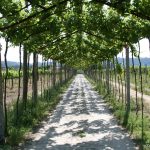OceanLiteracy4All – learning about the beach and sea in a fun, interactive way
The Sharing University has joined forces with the post-graduate university institute Atlântica in Barcarena to create a structured, but informal, non-academic course for people of all ages who want to gain a greater understanding of the one geographical factor that has informed Portugal’s history, culture and economy like no other — the ocean.
Text: Chris Graeme
With Portugal having the largest Exclusive Economic Zone (EEZ) in Europe, and the 20th largest in the world, (1,727,408 km2) and one of the longest unbroken coastlines on the continent (The Portuguese coast is extensive; in addition to approximately 943 kilometres (586 mi) along the coast of continental Portugal, the archipelagos of the Azores (667 km) and Madeira (250 km), there has never been a better time to educate people, particularly the young, on the importance of preserving this natural asset for future generations in a world where issues of manmade pollution and ecological and sustainable awareness are so pressing.
The OceanLiteracy4All programme aims to make the literate individual aware of the seven principles of Ocean Literacy and acknowledge the importance of oceans for humankind. Above all, it works from the premise that ordinary people, not just scientists and ecologists, can make an important contribution to building an Ocean-literate society, and promote a change in individual and collective behaviour towards the sustainable development of the Ocean and of its resources.
Although the courses, which are set to start either in the spring or summer of 2021, are non-academic — meaning they are not supported by a formal academic qualification or exams at the end — they can act as an extra-curricular complement to inspire secondary school children who are interested in geography or environmental issues and may later be keen to eventually pursue careers in geology, oceanography, maritime sciences, marine biology and many other areas linked to coasts and oceans.
Fun for families
On the other hand, the courses will suit families with members of all ages who simply want to learn more about the coast and the oceans in a lively and engaging way that involves field trips in which the groups of participants can sign up to a wide range of expert-led activities from variations in seawater and fauna to conservation, ocean observation, scientific diving and even marine photography.
Manuel Pinto de Abreu, Board Chairman at Sharing University stresses that while not academic, the in-class lessons will be led by university lecturers and on-site activities by scientists and other experts in the field.
“The idea is that any ‘citizen of the world’ can understand what the oceans are, how they function physically, geologically and biologically, and the importance of the ocean for they lives now and in the future,” he says.
“When referring to ‘all aspects of their lives’, we mean economic development, social development, and the way in which we have to look at the oceans from an environmental point of view. We don’t aim to train ocean specialists, rather help people to look at a beach, for example, as a physical and marine biological ecosystem,” Professor Abreu explains.
In a way these are fun and practical learning courses and activities to kindle the public interest in a similar manner to a leisure course, where applicants of all ages can meet new people with similar interests and learn something new at the same time, without the pressure of deadlines, essays and exams that a formal academic course would inevitably require.
To help understand the seven principles of ocean literacy (the Earth has one big ocean with many features, the ocean and life in the ocean shape the features of the Earth, the ocean is a major influence on weather and climate, the ocean made the Earth inhabitable, the ocean supports a great diversity of lie and ecosystems, the oceans and humans are inextricably interconnected and the ocean is largely unexplored), the Atlantic/OceanLiteracy4All programme will offer a syllabus which rests on four key pillars.
The Blue Literacy Club – on-campus sessions cover single subject, captivating introductions to Natural Capital, Ocean Exploration, Sustainability and Ocean Economics. Participants are free to choose one-day sessions or the whole season package covering the four subjects.
The Explorer’s Club – takes participants to the outdoors, to explore our Ocean-based surroundings, the coast, the seawater column, and the seafloor. Equally, participants are free to choose one-day sessions or the entire season package covering all the educational actions.
Three Citizen Science Initiatives – set up initially and occur over a season, “Master (of) the Surveys,” “Adopt an Ecosystem” and “Capture this”. Participants will be trained by scientists for specific tasks and if interested may collaborate with scientific monitoring activities. Involvement and training may be seasonal or year-round.
“Live Ocean” — an interactive, permanent, ocean observatory with live streaming of a network of submarine and coastal cameras and sensors at selected sites. Participants can monitor variations in the seawater and fauna or observe Ocean Literacy actions live through the integration of cameras in ROVs and AUVs. These observatories may be linked to international networks with the opportunity to contribute to global oceanography research.
Community integration
For younger learners the project in not unlike the Blue School (Escola Azul) Government-funded initiative which actively engages the school community in the understanding of the ocean’s influence on us and our influence on the ocean and which integrates the local community into its initiatives and activities and interacts with a broader educational and scientific network. The difference being is that these courses are not linked to the national curriculum.
“This is an initiative that will be carried out mostly on the beach and the sea, close to the coast, to educate about what the sea is and what the issues are linked to it,” said Dr. Abreu.
The Chief Research Officer for the OceanLiteracy4All programme, Dr Filipa Marques says, “This programme is aimed at families who can go to the beach or ocean and learn through activities that are very practical, interactive and accessible to all and doesn’t depend on the level of academic education that they have or age.”
Filipa Marques explains that pending on the type of action, location, logistics and age groups, the course may have up to 20 people. “Our initiatives follow a practice-based approach for actionable knowledge. Participants will gain competency in on Ocean Literacy by choosing One-Day (O), Season (S) or All-Year (Y) Packages, each delivering multiple and exciting opportunities to get to know our local coastal and ocean surroundings. There will be also Citizen Science Initiatives set up to occur over a season or year-round.
“We see this as an opportunity to reach out to all, by bringing high level knowledge and expertise from academia and industry to everyone,” concludes Dr. Filipa Marques.










